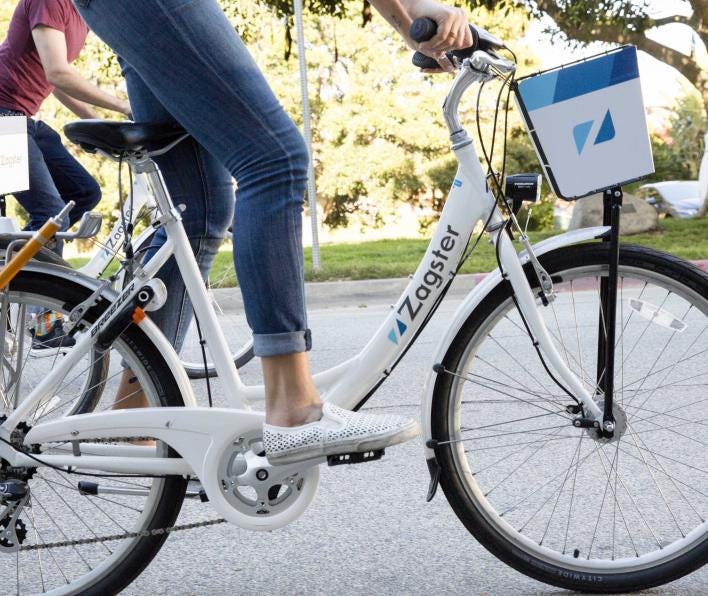Scooters and Bikes: Better for Salem?

By: Rachel Spenser '19
In the fall of 2018, Salem State University surveyed students, faculty and staff about commuting to campus. It was found that 76 percent of those who took the survey drive alone to and from campus. They are contributing to over 30 percent of Salem’s greenhouse gas emissions. In 2019, the companies Zagster and SPIN joined the community with their bike and scooter systems. The goal is to cut down on traffic in Salem and for commuters, tourists, and inhabitants of Salem to use these methods of transportation instead of cars.
The bikes from Zagster were implemented earlier in 2019 and have been profitable for the city. There are 16 hubs and 90 bikes in Salem. They cost $3 per hour, but there are other options. Students and business partners can pay $15 a year to have the ability to have trips lasting less than an hour free, only adding $2 per hour after the first. Other customers can pay $25 yearly to get trips under 1 1/2 hours free, then pay $2 per additional hour.
The popularity of the bikes convinced the city to add scooters to their attempt at cleaning Salem’s air and thin the city's traffic. The scooters are a much newer system implemented at the end of July. They can be found at the bike-share locations, transit, bus stops, and other bike racks that the city has. On the Salem State campus there are scooter parking spots at the dorms, library, Gasset Fitness Center, Ellison, Sullivan, the School of Social Work, and the central campus bike path.
Currently there are about 100 scooters in the city, the city’s assistant director of traffic parking, Nick Downing, informed the public that the company will eventually have about 250 scooters throughout the city.
The scooters run through an app called “SPIN.” On here you pay for your ride and it unlocks the scooter. Each ride is $1 plus $0.15 per minute it is being used. You must be at least 18 years old to operate and rent a scooter. On each scooter is a place to scan a license to prove your age. They are very easy to operate with a green and red lever for stop and go.
At any point, if the scooters become a hazard or prove to cause safety issues, Chief of Salem police, Mary Butler, can shut them down. The scooters were approved by the city council in June on a 7-3 vote. Most were concerned about how safe they were, and the availability of helmets.
Currently, helmets are recommended and can be borrowed from the city, but by the time everything is fully put in motion, there will be vending machines for helmets at each of the parking stations that people can buy when they rent a scooter.
According to some regular Salem commuters, traveling to school or to jobs, the scooters seem less safe than the bikes are. This is not because of their design, but because the people using them are less aware of the Salem traffic. One regular commuter said, “At least the cyclists were abiding by traffic rules, they knew what was going on and were paying attention to the cars. The people I’ve seen riding the scooters act like they have the right of way everywhere.” Brandon Souza, a Beverly resident that regularly drives through Salem, considers them to be “hazardous” and “dangerous.” Maybe the scooters will need more warnings for users to be aware of the traffic or some type of training classes for the regular users.
If the city continues with the scooters and bikes, and they are regularly used, hopefully the traffic will improve and have a positive impact on the city’s reduction to air pollution.


